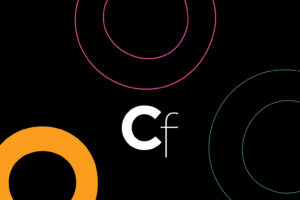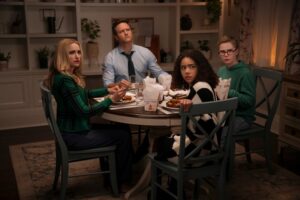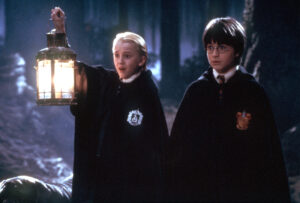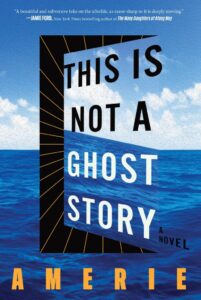Cabaret Performer Justin Vivian Bond Dishes on the Current Cultural Climate

Editor’s Note: This story is part of Newsmakers, a series where we interview the movers and shakers who are making change in the art world.
Justin Vivian Bond is a star of the stage and a powerful singer and interpreter of songs. They are also a multivalent force of personality in and around the art world, with performance-oriented and visual work featured in institutions including the New Museum in New York, the alternative art space Participant Inc, and London’s Victoria and Albert Museum.
In 2024 the MacArthur Foundation awarded one of its prestigious “genius grants” to Bond (who has not been sheepish since about adopting the “genius” mantle) for “working in the cabaret tradition and weaving cultural critique and an ethic of care into performances that center queer joy.” In May Bard College awarded Bond an honorary degree in tribute to (in the Foundation’s words) a “decades-long journey across the landscape of gender [that] has both informed their artistic practices and played a significant role in ongoing conversations around gender identity and LGBTQ+ rights.”
During Pride Month in June, Bond will perform a series of stage shows at Joe’s Pub, a lower-Manhattan cabaret haven that has long served as a sort of home. They are also acting as the venue’s Vanguard Resident for the 2025–2026 season, curating a series of shows by other artists. For a set of performances in London in July, Bond will resurrect (with pianist Kenny Mellman) the beloved duo Kiki & Herb, for which Bond takes on the persona of a drink-swilling, pill-popping, elderly doyenne who has seen better days.
To take stock of their ongoing flurry of activity, ARTnews spoke with Bond (at home, in front of a giant Joan Crawford shower curtain hanging on a wall) about the current cultural climate, their evolving political activism, and their outlook on the survival of marginalized communities.
ARTnews: You’re performing the last part of a run of shows at Joe’s Pub soon. How will it end?
Justin Vivian Bond: “Well, Well, Well” is the third of a three-part series. “Oh Well” was last fall. “Well, Well” was in May. And “Well, Well, Well” starts June 18 [and runs through June 29]. I’ve been thinking for years that I should do a show of just great lesbian singer-songwriters. The fashion designer Erdem did a collection that he showed last fall based on The Well of Loneliness [a 1928 novel] by Radclyffe Hall, and I thought, “That’s it!” I reached out to Erdem and he provided me clothes from the collection to wear for the show, so it’s a little symbiosis inspired by the book, the designer, and great lesbian singers and songwriters. And then, because we have such an unfriendly trans climate, I decided to throw in some trans singer-songwriters too.
What about the Radclyffe Hall book intrigued you?
I’ll be perfectly honest with you: I did not read the book! [Cackles.] But I did research Radclyffe Hall and their relationship with gender and iconography. Radcliffe and their lover [Una Troubridge] definitely served very revolutionary nonbinary looks and butch femme dynamics, and they were very subversive. That’s what inspired me.

Justin Vivian Bond ready for the stage at Joe’s Pub.
Photo Christopher Garcia Valle
The V&A East Storehouse, part of the Victoria and Albert Museum in London, just installed the wallpaper from a work of yours that was in the 2017 New Museum show “Trigger: Gender as a Tool and a Weapon.” How do you feel now about that “Trigger” show? It’s been eight years—a very long eight years.
For me it’s a standout memory for several reasons. One is because it was my first exhibition in an actual museum. Also, I got to do three things at once. The show was on exhibition, I did a performance in the window, and I was also doing a show at the same time at Joe’s Pub. They all sort of played off each other. But the main thing is that my mom, who’s since passed, and my sister, brother-in-law, niece, and nephew all came to visit the museum with me. My mom was a painter, so for her to go into the museum and see my work hanging—work that I had done in high school up to the present—was amazing. We had so much fun. She of course was like, “Oh, I know where you got all your talent.” [Laughs.]
She later had her very first show of her watercolors, two months before she died. It was in the place where she was living, but it was very exciting for her to get a bunch of her paintings back from different people and put them on display. That was the last really big, major thing for her. I have her palettes and her watercolors and all the stuff at my house, and I’m going to reactivate it when I have time. I’ll make paintings with her colors.
You recently performed as part of “An Evening with Joy Episalla” at MoMA. What is your relationship with Episalla and fierce pussy, the queer art collective they helped found?
I met Zoe Leonard before I met any of the rest, when I lived in San Francisco years ago. Then, when I lived in [in New York] on Second Avenue from 2008 to 2011, I had a fierce pussy poster—which said, “I AM A / lezzie / butch / pervert / girlfriend / bulldagger / sister / dyke / AND PROUD!”—hanging in my loft. Somebody did a photo shoot and Joy saw that their work was hanging in my house. We started talking, and it wasn’t very long afterward that I had my first show at Participant Inc, and we hit it off. We had a conversation at PS1 about my work, and I kind of became an honorary member of fierce pussy. They took one of my childhood pictures—because I said that I thought of myself as a tomgirl—and it ended up at the Leslie-Lohman Museum of Gay and Lesbian Art when they had a fierce pussy show there.
We were also arrested together in 2019 in Washington, D.C., outside the Supreme Court. I was nervous because I didn’t know whether I was going to jail or not, and I didn’t want to get separated from them. As I was getting arrested, I put on my lipstick and was like, “Well, if they see lipstick, maybe they’ll be sure and put me with the women.” We call ourselves the Lipstick Brigade, because we all put on our lipstick in solidarity as we were getting arrested.

Justin Vivian Bond performing at Joe’s Pub.
Photo David Andrako
You’re going to be resurrecting Kiki & Herb in London in July. What do you get out of shifting your persona into Kiki? What does it bring out of you, and has that changed over the decades you’ve been doing it?
It has definitely changed. When I first started doing it, it was in response to the world around me as a young trans person in San Francisco, when everybody was dying of AIDS. I was young and didn’t feel like I had any real authority—and I didn’t want to come across as earnest or strident, even though I wanted to be political—so I created this 60-some-year-old alcoholic lounge singer who had been everywhere and done everything. Then I could say all the things I wanted to say and that appealed to my community, and they could hear things that no other performers were really centering in their work.
That started in the early 1990s, and by the time we got to Off Broadway in 2003, I was kind of tired of it. But we kept getting offers, and then we were offered Carnegie Hall. After that I said, “OK, I’m quitting—I’m done.” I went over to get my master’s degree in performance design from Central Saint Martins College in London, and the Scissor Sisters asked us to come out on tour and open for them, so of course we did that. Then [in 2016] some people were like, “Why don’t you come and do Broadway?”
After that I couldn’t do it anymore because I wanted a different kind of a life. I felt like the rage that I had channeled when I first started as Kiki was genuine and real and truthful, but by the time I finished, I felt like I was manufacturing whatever it was that made her seem real to people and that appealed to them. It was also taking its toll on me, because it got in the way of me actually being happy and healthy and growing as an artist. So I had to stop.

Close-up for the wallpaper in Justin Vivian Bond’s installation for the 2017 New Museum show “Trigger: Gender as a Tool and a Weapon.”
Courtesy Justin Vivian Bond
But you didn’t stop.
In 2015 Joe’s Pub asked me if I would consider doing a series for my 25th anniversary in show business or whatever, and I was doing a whole season dedicated to shows I’d been doing over the years. They asked if I would do Kiki, and I told them I would do it if it made me enough money for a down payment on a house. So that’s why I did it then. And then I always joked that if I ever did it again, it would be “The Second Bathroom Tour.”
We haven’t done a non-Christmas Kiki & Herb show since, and Trump being reelected made me think it’s not going to be hard for me to manufacture rage. It’ll be organic, and it’ll be fun because when it’s real and centered and grounded, it’s kind of cathartic.
We’re obviously living in very troubling times for the trans and queer communities—and all communities in general. How would you describe your current mood regarding that?
It’s a lot worse for a lot of other people, you know. I’m very aware of how privileged I am, and I’m angry on behalf of not just my community but all at-risk communities. I’m a successful, white, trans woman who’s been around the block a few times. I’ve lived through enough to know that this isn’t maybe the worst thing that’s ever happened, because I remember when, literally, the government wanted us dead. It was not hyperbolic to say that the U.S. government wanted gay people to die. It’s so frustrating that we’re back here, and I know it’s terrifying for young people who have never lived through it. When it’s happening to you, what do you do? How do you rally? How do you pull yourself together? How do you fight? That’s where we all are, and we’re all kind of figuring it out as we go along. But one of the gifts of being older is that you can have a little bit more perspective and know that this too shall pass. But there’s always just so much collateral damage. People literally die, and for no good reason other than that these stupid, arrogant, rich, white people have no sense of humanity.

Justin Vivian Bond performing at Joe’s Pub.
Photo David Andrako
You cut a vacation short to return to New York for a protest march in April. How was that march for you? How much hope do you have that there is something brewing or bubbling up?
I wouldn’t say I have hope, but I have faith. I have faith that we will persevere. As queers, trans people, and other minorities who are in dangerous and treacherous positions, we’ve always managed to survive. We’ve always found work-arounds. Whether it’s a highly visible thing, like a march, or just finding ways to not follow the rules, live our lives, and protect each other, we are adaptable. No matter what happens, we will adapt—I have faith in that. But do I have hope that it’s going to change and these people are going to wake up and do the right thing soon? No, I don’t. I think they’re always going to be horrible and evil, and until something comes along, like a huge wave of all of us banding together and removing them like a cancer from their positions of power, it’s going to just be this way.
Was there anything about that recent march that felt different or unique to you?
I read this piece that was saying we’re all out there marching to show that we’re in solidarity with each other, but there are never any demands. There’s never anyone saying, ‘We’re not moving and we’re not going to leave until you tell us you’re going to change this or change that.’ Marching is good for the spirit, and it’s good to give newspapers a story to write about, saying that there is resistance. But power isn’t being harnessed in order to force these people to make decisions and act in the way that we need them to act. When you have people surrounding Social Security offices or government facilities to keep DOGE from going in, that is major. That’s effective. That matters.





